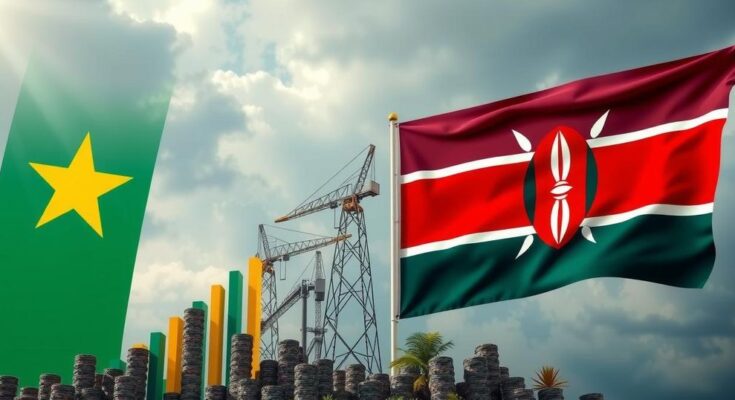Kenya and the Democratic Republic of Congo have been identified as key beneficiaries of recent IMF reforms that increase access to concessional funding and reduce debt servicing costs. The IMF has eliminated surcharges on excessive borrowing and increased the borrowing threshold, thus lowering financial burdens for member countries. This initiative also involves a significant boost to the Poverty Reduction and Growth Trust, aimed at assisting low-income nations. Experts emphasize the need for careful allocation of the newly available funds to ensure meaningful development outcomes.
The Democratic Republic of Congo (DRC) and Kenya have emerged as prominent beneficiaries of recent reforms initiated by the International Monetary Fund (IMF) and the World Bank, aimed at assisting low-income and heavily indebted nations in Africa. These reforms have expanded access to concessional financing and alleviated debt servicing burdens, as highlighted by World Bank President Ajay Banga at the organization’s annual meetings in Marrakesh, Morocco, last year. In an unprecedented move, the IMF has announced relief measures for at least seven countries, including Kenya, by increasing the borrowing headroom from its General Resources Account and abolishing surcharges on excessive borrowing. Previously, countries borrowing in excess of 187.5 percent of their quota were subjected to surcharges of at least two percent. The new reforms raise this threshold to 300 percent, effectively reducing the debt servicing costs for numerous African nations. IMF Managing Director Kristalina Georgieva has stated that this reform will decrease borrowing costs for members by approximately 36 percent or around $1.2 billion annually, with a significant proportion of benefits directed towards sub-Saharan African countries. Notably, Kenya had recently begun incurring surcharges, amounting to $4.6 million earlier this year, while navigating challenges related to rising interest rates and high debt distress risk alongside Burundi and South Sudan. Additional reforms recently approved by the IMF’s board are set to further benefit countries reliant on the lender’s concessional lending facility, known as the Poverty Reduction and Growth Trust (PRGT). Funding under this initiative will more than double to $3.8 billion annually, designed to assist countries, which have been particularly burdened by the economic impacts of the Covid-19 pandemic. Among the countries borrowing from the PRGT, Kenya and the DRC are the top three borrowers globally. As of September 2023, the DRC has a debt of $2.1 billion to the PRGT, behind only Ghana, while Kenya owes $1.6 billion. Other nations, such as Uganda and Tanzania, have also availed significant loans from this zero-interest facility. Despite the significant advancements represented by these reforms, the broader consensus indicates that the IMF must enhance its support for struggling African nations, particularly in how newly available resources are utilized. Development economist Fadhel Kaboub emphasized, “The surcharge policy reform is a welcome and long overdue reform that will save countries a lot of money. But it’s also important to recognize that this was an illegal, uncalled for and unnecessary charging of fees to already struggling countries, and I think it is important for the countries to push for reimbursement.” Dr. Kaboub also noted that the allocation of newly unlocked resources should prioritize development initiatives, such as boosting agro-ecology and food production capacity.
The article discusses recent reforms by the IMF and World Bank designed to alleviate financial burdens on low-income countries, specifically in Africa. These reforms are particularly significant for the Democratic Republic of Congo and Kenya, two nations characterized by high debt distress. The IMF’s decision to increase borrowing limits and eliminate surcharges on excessive borrowing is framed as a response to the economic hardships exacerbated by the Covid-19 pandemic. The Poverty Reduction and Growth Trust (PRGT) serves as the key concessional lending vehicle for these countries, providing funding to help them recover economically and engage in essential development projects.
In summary, the recent reforms by the IMF and World Bank mark a significant stride in providing financial relief to countries like Kenya and the DRC, easing their debt burdens and enhancing access to concessional loans. However, the effectiveness of these measures will ultimately depend on how the funds are allocated and utilized, with an imperative focus on fostering sustainable development in the region. Stakeholders are encouraged to ensure that these benefits translate into meaningful economic growth and stability for the affected countries, addressing long-standing structural challenges.
Original Source: www.theeastafrican.co.ke




